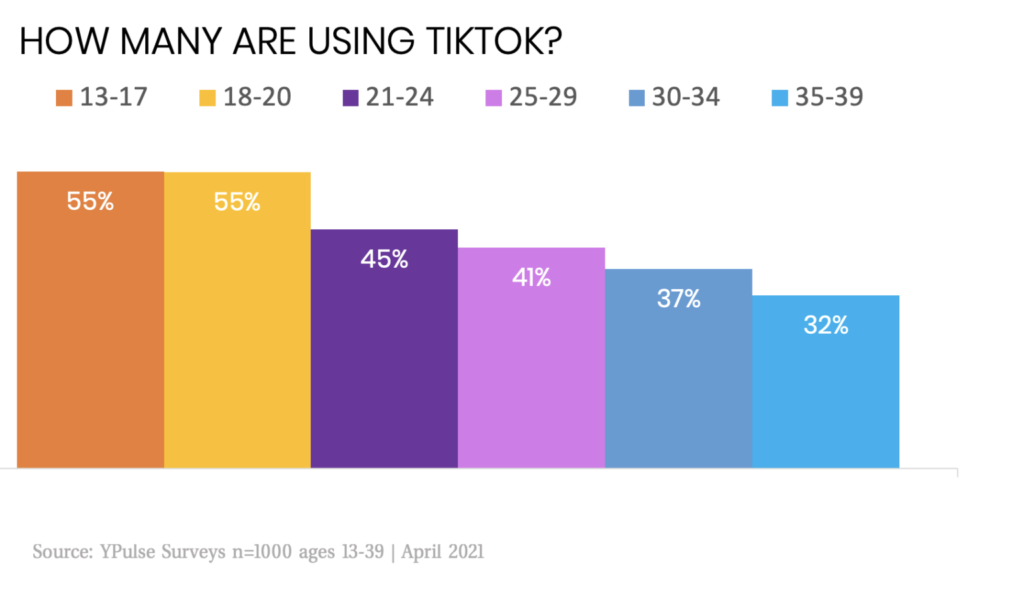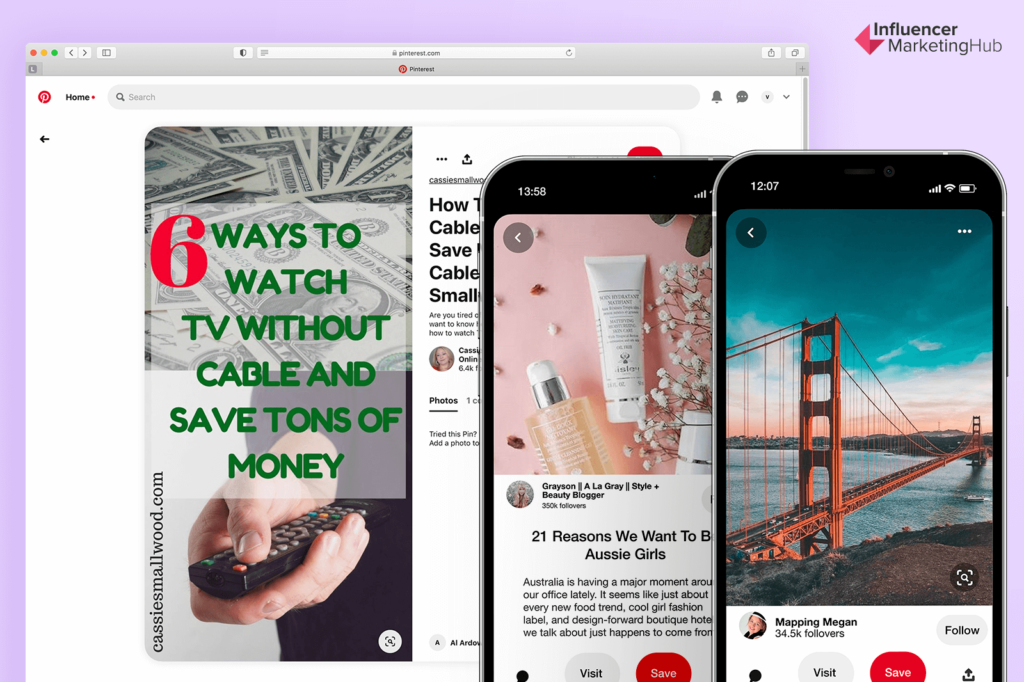Top Platforms for Influencer Marketing
Influencer marketing is a powerful income-generating strategy for brands of all sizes to implement. In fact, about 73% of marketers in the US are projected to incorporate influencer marketing campaigns in their overall strategies in 2022. There are many factors to consider when planning an influencer marketing campaign, including picking the right content creator to represent your brand, developing a relationship and establishing contract terms, and choosing the right platform.
The Top 27 Influencer Marketing Management Platforms
Teaming up with influencers has become a game-changer for brands looking to connect with their audiences. But managing these partnerships can be a handful. Influencer marketing management platforms are like the Swiss Army knives of collaboration, offering tools to simplify, organize, and supercharge influencer-brand relationships.
We’ve identified some of the best options for managing influencer campaigns. Get ready to explore how these platforms shake up the way brands and influencers team up, create, and make a splash in the wild world of social media and digital advertising.
1. Aspire
Aspire is an influencer marketing platform that helps brands discover influencers, manage campaigns, and measure results.
Pros: Advanced search filters, campaign tracking, analytics.
Cons: Pricing might be high for smaller businesses.
2. Traackr
Traackr is an influencer marketing platform focusing on data-driven influencer discovery, relationship management, and performance measurement.
Pros: Robust influencer search and analytics.
Cons: High cost for smaller businesses.
3. Upfluence
Upfluence provides influencer search and management tools, campaign tracking, and performance analysis.
Pros: Comprehensive influencer database, campaign monitoring.
Cons: Cost might be a barrier for some users.
4. Grin
Grin is “the original” influencer marketing platform offering influencer discovery, relationship management, and campaign tracking.
Pros: User-friendly interface, collaboration tools.
Cons: Might lack some advanced analytics features.
5. CreatorIQ
CreatorIQ is an end-to-end influencer marketing platform focusing on influencer discovery, vetting, and campaign management.
Pros: Advanced fraud detection, extensive database.
Cons: Pricing may not be feasible for smaller businesses.
6. Julius
Julius is a data-driven influencer marketing platform offering influencer discovery and campaign management.
Pros: Extensive influencer database, robust analytics.
Cons: Can be pricey for smaller businesses.
7. TapInfluence
TapInfluence is an influencer marketing platform known for influencer search, campaign management, and performance measurement.
Pros: Intuitive interface, comprehensive tracking.
Cons: Pricing might be high for small-scale campaigns.
8. YouTube BrandConnect
YouTube BrandConnect (formerly known as Famebit) is an influencer marketing platform acquired by YouTube, offering influencer collaboration and brand integration within YouTube.
Pros: Direct access to YouTube influencers, streamlined integration.
Cons: Limited to YouTube platform, may not cover other social media channels.
9. Klear
Klear, owned by Meltwater, is an influencer marketing platform with a focus on influencer discovery, monitoring, and campaign analysis.
Pros: Advanced influencer search and detailed analytics.
Cons: Higher pricing may be a limitation for smaller businesses.
10. Mavrck
Mavrck is Later’s influencer marketing platform emphasizing customer activation, social advocacy, and influencer relationship management.
Pros: Strong emphasis on customer advocacy, excellent relationship management.
Cons: Might have a steeper learning curve for new users.
11. Post for Rent
Post for Rent is an influencer marketing platform that facilitates influencer discovery, campaign management, and performance tracking.
Pros: User-friendly interface, efficient campaign management.
Cons: May lack some advanced analytics features.
12. HYPR
HYPR is an influencer marketing platform focused on influencer discovery, vetting, and campaign performance analytics. (editors note: HYPR has been acquired by Julius)
Pros: Extensive influencer database, thorough analytics.
Cons: Cost might be a barrier for smaller businesses.
13. NeoReach
NeoReach is an influencer marketing platform that concentrates on influencer discovery, campaign management, and performance measurement.
Pros: Powerful influencer search capabilities, robust campaign management tools.
Cons: Pricing might be high for smaller or starting businesses.
14. Onalytica
Onalytica is an influencer marketing platform emphasizing influencer identification, engagement, and relationship management.
Pros: Detailed influencer analysis, strong relationship management features.
Cons: Interface may be complex for new users.
15. Assembled Brands
Assembled Brands is an influencer marketing platform focusing on creator collaborations and e-commerce integration.
Pros: Emphasis on e-commerce integration, creator collaborations.
Cons: Limited diversity in terms of social platform integrations.
16. IZEA
IZEA is an influencer marketing platform offering influencer discovery, campaign management, and performance tracking.
Pros: Easy-to-use interface, campaign monitoring tools.
Cons: Cost may be high for smaller budgets.
17. Tagger Media
Tagger Media is an influencer marketing platform known for comprehensive influencer discovery, campaign management, and analytics.
Pros: Detailed influencer search, analytics tools.
Cons: Might be costly for smaller businesses.
18. Meltwater
Meltwater is an influencer marketing platform focusing on media monitoring, social listening, and influencer identification.
Pros: Extensive media monitoring, influencer identification tools.
Cons: Pricing might be on the higher side for some businesses.
19. Dovetale
Dovetale is Shopify’s influencer marketing platform that focuses on influencer discovery, campaign tracking, and performance measurement.
Pros: Efficient influencer search, campaign tracking.
Cons: Pricing may not be feasible for smaller businesses.
20. Emplifi
Emplifi (formerly SocialBakers) is an influencer marketing platform emphasizing social media analytics, influencer identification, and campaign management.
Pros: Extensive analytics, influencer identification features.
Cons: Cost may be high for smaller businesses.
21. Sideqik
Sideqik is an influencer marketing platform known for influencer discovery, collaboration tools, and campaign tracking.
Pros: Collaboration tools, user-friendly interface.
Cons: Pricing might be a barrier for some users.
22. HypeAuditor
HypeAuditor is an influencer marketing platform focusing on influencer vetting, fraud detection, and analytics.
Pros: Advanced fraud detection, detailed analytics.
Cons: Cost might be a barrier for smaller businesses.
23. Fullscreen Mediaworks
Fullscreen (formerly known as Reelio) is an influencer marketing platform known for influencer discovery, campaign management, and analytics.
Pros: Intuitive interface, comprehensive campaign management.
Cons: Pricing might be high for smaller businesses.
24. Phyllo
Phyllo is an influencer marketing platform emphasizing influencer collaboration, campaign management, and analytics.
Pros: Emphasis on influencer collaboration, user-friendly interface.
Cons: Might lack some advanced analytics features.
25. Intellifluence
Intellifluence is an influencer marketing platform offering influencer discovery, collaboration, and campaign management.
Pros: Streamlined influencer discovery, campaign collaboration.
Cons: Interface might not be as modern as some competitors.
26. Runway Influence
Runway Influence is an influencer marketing platform focusing on influencer discovery, collaboration, and performance tracking.
Pros: Collaboration tools, performance tracking.
Cons: Might be less advanced in terms of analytics compared to other platforms.
27. Lumanu
Lumanu is an influencer marketing platform that focuses on streamlining influencer collaboration and amplifying user-generated content for brand campaigns. It aids in discovering influencers and facilitating the sharing and usage of user-generated content.
Pros: Advanced content sharing capabilities, streamlined influencer collaboration, emphasis on user-generated content for campaigns.
Cons: Might have limitations in terms of comprehensive analytics and data tracking compared to some larger platforms.
How to Pick the Best Platforms for Influencer Marketing Campaign Distribution
When it comes to finding the ideal influencer marketing distribution channel, making the right choice can significantly impact the success of your influencer marketing campaigns. The process of selecting the best platform may seem overwhelming, but with the right guidance, you can make an informed decision that aligns with your organization’s goals and objectives.
Here are some key steps to pick the most suitable influencer marketing platform for your specific needs:
Set campaign goals
Before diving into the selection process, it’s crucial to establish your campaign objectives. Do you want to boost brand awareness, increase sales, or generate user-generated content?
Understanding your goals will help you pinpoint an influencer marketing platform that aligns with your desired outcomes. Different platforms may specialize in certain campaign objectives, so knowing what you’re aiming to achieve is the first step in making the right choice.
Understand pricing details
Each influencer marketing platform operates with its unique pricing structure, so it’s important to be aware of the costs associated with using a particular platform. For example, some platforms charge a flat fee, while others take a percentage of your campaign budget.
Evaluate your budget and cost expectations to find a platform that not only fits your financial resources but also offers a transparent pricing model that suits your campaign’s scale.
Read testimonials
To gauge the effectiveness and reliability of an influencer marketing platform, reading testimonials and reviews from other brands that have used the platform is invaluable. These insights can provide you with a real-world perspective on the platform’s performance, customer support, and overall user satisfaction.
Bonus tip: Look for reviews that relate to your industry or niche, as this can offer even more relevant information.
Learn which influencers are accessible on each platform
Different influencer marketing platforms have varying degrees of access to influencer talent. Some platforms might have a vast network of diverse influencers, while others might specialize in specific niches or demographics.
It’s essential to understand which influencers are available on a platform and whether they align with your target audience and campaign goals.
Learn the costs for influencer compensation
Influencer compensation is a significant part of your campaign budget. Different platforms may have varying methods for compensating influencers, and this can impact your overall campaign costs.
Understand how the platform handles influencer payments, whether it involves negotiation, fixed rates, or a bidding system. This information will help you budget effectively and select a platform that accommodates your financial requirements.
The Top Channels for Influencer Content Distribution
Instagram can be considered the original platform for the influencer marketing industry. There are over 1 billion monthly active users on Instagram with content niches that include travel, beauty, fashion, health and fitness, parenting, music, business, and everything in between. With so much diversity in content, Instagram is an easy choice for influencer marketing. TikTok has risen to glory in the last few years and now stands as a leading channel for aspiring and established influencers. The numbers are staggering.
“As of January 2021, TikTok had been downloaded over 2.6 billion times worldwide. It experienced meteoric growth in 2020 when the global pandemic took over the world and many of us were forced to stay indoors due to lockdowns. In the first quarter of 2020, it was downloaded a whopping 315 million times across Apple and Android phones, making it the most downloaded app in the world.” Digital Agency Network, 2021
Instagram creators have incorporated similar features as TikTok to the platform with the introduction of Instagram Reels and a virtual feed for Stories. The similarities in the two apps have created additional opportunities for influencer content marketing that can be used cross-channel. We will outline the key differences between the two apps below.
Gone are the original Instagram days with over-filtered photos and images of food. Today’s Instagram is more focused on video with three different components. Instagram Stories are similar to Snapchat: short-form videos that disappear after 24 hours. IGTV is more like YouTube: long-form content usually around 10 minutes, but up to an hour for verified accounts. Lastly, Instagram Reels are Instagram’s answer to TikTok’s success: short-form video content usually with a song or quick voice-over that can be replicated by other users.
TikTok
TikTok started out as Musical.ly in 2014 and was originally an app to create and share 15-second videos of lip-syncing. By 2019, Musical.ly had rebranded to TikTok and the content diversified to include videos up to 60-seconds long. These were usually of dancing, comedic skits, commentary about products or world events, or viral challenges or trends. Gen Z is the poster child for TikTok users, with over half of that generation using the app, compared to 39% of Millennials.
Other Platforms to Consider for Influencer Marketing
While TikTok and Instagram are the main platforms for influencer marketing, there are opportunities to be had on other platforms as well – especially if your brand’s target audience aligns based on age or other factors.
Pinterest has over 400 million active users and 85% of them are women. According to a survey of Pinterest users, 60% say they get their ideas for what to buy from Pinterest and 90% say Pinterest helps them decide what to purchase. For brands with visuals that would appeal to the audience of Pinterest users, influencer marketing on this platform is a fantastic opportunity for generating leads. The website has a built-in platform to link brands and top influencers called Pin Collective. To access this tool, businesses must commit to a minimum spend for promoted pins and other content. The brand can then work directly with creators to generate content for the brand’s boards. The limitation of Pinterest’s influencer marketing capabilities is the content creators are limited to a pre-decided group.
Source: Influencer Marketing Hub
YouTube
Like Pinterest, YouTube has also developed an internal platform specifically for influencer marketing. Similar to Google Ads and Facebook Ads, YouTube has a formal advertising setup allowing marketers to build different types of content campaigns. Influencer content on YouTube is especially appealing to the Gen Z and Millennial audiences who watch way more streaming apps than traditional television.
Schedule a consultation today for advice on which platform your brand should use for influencer marketing campaigns, or plan a social media training workshop to give your strategy a boost!
Frequently Asked Questions
How can a small business reach out to influencers?
Small businesses should identify nano or micro influencers who are more likely to respond to direct inquiries for collaborations than influencers with larger followings.
How many small businesses use influencers?
Recent studies have found that about 25% of small businesses use influencer marketing.
How long should an influencer marketing campaign last?
Influencer marketing campaigns should run long enough to see results. Results could include an increase in sales using a coupon code customized for the influencer’s followers or an increase in followers on the brand’s social media channels.


